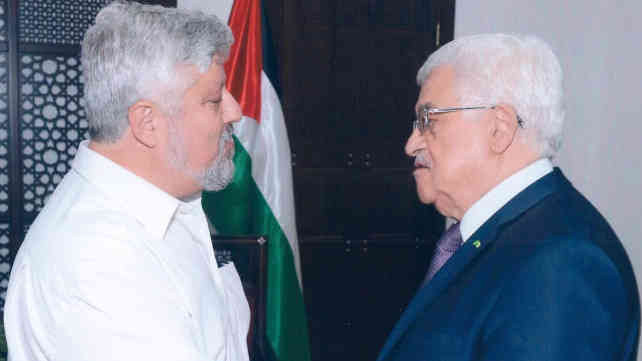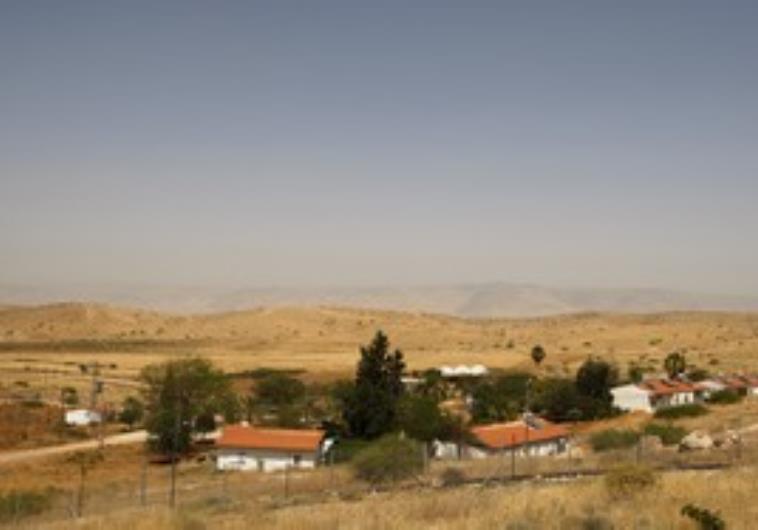The rulers of the Middle East are now beginning to see that working with Israel – instead of isolating it – can strengthen their own security and help them meet the needs of their people. These emerging relationships promise to be an example for other nations to follow, a force for moderation, and they are a message to the Palestinian leadership that a bright future is possible when you finally put aside generations of hatred and choose to live side-by-side in peace with the Jewish State of Israel.
We must all work for that, toward that future, two states for two peoples: one Jewish with secure and defensible borders and one Palestinian with its own flag and its own future.
Today that dream seems remote. This is tragic. The absence of a constructive peace process is nothing to celebrate. Israel’s security cannot be fully assured and a promise cannot be fully realized until she is at peace with all her neighbors, and peace begins by talking.
It has been nearly eight years since Palestinian Authority President Mahmoud Abbas had direct talks with an Israeli prime minister. There’ve been talks about talks and sessions where others have served as a go-between, but no Palestinian willingness to talk face-to-face. There is no substitute for direct negotiations.
Preparing for conflict may require eternal vigilance, but working for peace demands eternal faith – faith that there is a future beyond bloodshed and war. We share that faith and we are ready for that day.
Those are not my words. Those words were spoken by Howard Kohr, CEO of AIPAC. I can sign off on almost everything above. If I had written those words I would have added that working for peace demands not solely faith, but also initiative. What Kohr and Prime Minister Benjamin Netanyahu don’t say is that in the entire history of the State of Israel, there has never been an Israeli peace initiative.
I know the response will be – well where is the Palestinian peace initiative? On February 20, just two weeks ago, President Abbas presented a Palestinian peace initiative to the United Nations Security Council. It was fascinating to hear all of the Israeli responses to that initiative, that there was nothing new there. That is essentially correct – the Palestinian peace initiative has been on the table for a long time, it is based on the Arab Peace Initiative that was issued in March 2002 and ratified at least six times since, not only adopted by the Arab League but also by the Islamic Conference representing 56 countries, including Iran.
There has never been an official response by Israel to the Arab Peace Initiative, just as there has never been an Israeli peace initiative. In fact, there has never been an official Israeli government decision or even resolution in the Knesset supporting the two-state solution.
To me, as someone who grew up in the Zionist movement with the national ethos of taking our fate into our own hands, no longer being the victims of history but rather consciously being the shapers and makers of our own, the lack of Israeli initiative for peace is simply bewildering.
There is no doubt Netanyahu is one of the world’s greatest orators. He is amazing in the way that he captures the audience, uses gimmicks, drawings, cartoons – he had the listeners in the palm of his hand. Unfortunately, his slogans never give way to real substance. Yes, he has a real, legitimate case when he talks about the Palestinian Authority paying the families of terrorists, and the Palestinians really do have to confront that issue, tell the world why they are doing that and how that does not encourage terrorism.
Netanyahu’s argument about the non-recognition of Israel as the Jewish nation state is another good argument and the Palestinians have failed to explain what their problem is in recognizing the Jewish people’s right to statehood. I have heard their explanation and I understand where it is coming from, and I have heard them say it will be dealt with toward the end of negotiations, not as a precondition. I do not believe that Palestinian non-recognition of Israel’s Jewishness is an excuse for not recognizing the Palestinian people’s right to national statehood by Israel.
Why can’t Israel present a peace initiative that goes beyond the slogans of calling on the Palestinians to negotiate? Israel is not giving away bargaining cards by stating a priori that the Palestinians have a right to a state and that it will be in within the territories that Israeli conquered in June 1967. Israel can declare that the negotiations will be based on those 1967 line with agreed upon territorial swaps. Israel can say that we must find a solution that recognizes Palestinian rights in Jerusalem, because Israel agreed in 1993 that Jerusalem is one of the core issues.
Neither US President Donald Trump nor Prime Minister Netanyahu can remove Jerusalem from the table.
Israel can also quote and agree with part of the statement on Palestinian refugees in the Arab Peace Initiative, that we must find a just and agreed solution to the Palestinian refugee issue. Palestinians have wanted to hear the words of recognition of their national rights for as long as Israel has been waiting. The difference is that Israel achieved its national rights and after almost 70 years, is a strong state. In the words of Howard Kohr: “The story of Israel is the story of an idea, an idea that proved bigger, more durable, and more inspiring than any obstacle and any threat.”
Israel is the victor in the Israeli-Palestinian story.
Israel is not the victim and it is long past the time to play the victim card – that is an anti-Zionist, Diaspora- mentality game. As victors it is time for Israel to take the initiative. Israel can also afford to demonstrate the generosity of a victor. This can be done without taking unreasonable risks. Peace will be built by changing the nature of relations between Israelis and Palestinians.
That will never be achieved through the barrels of rifles and the power of tanks. It can be achieved through the generosity of spirit and the true intention of turning slogans into deeds.
Link to podcast of this article: https://soundcloud.com/gershon-baskin/no-more-slogans-we-need-tachlis-march-8-2018-jerusalem-post


